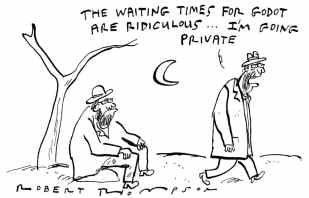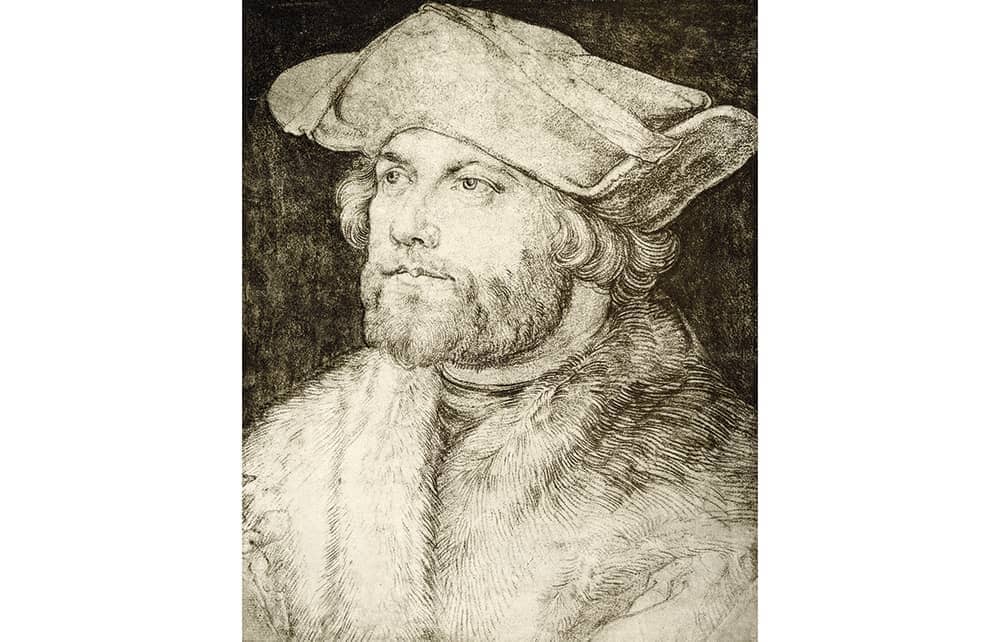In 1866, Dante Gabriel Rossetti visited a London print shop to buy a large canvas of a Renaissance street. He recognised that the bustling scene – black-robed clerics, bargaining merchants, black porters and children teasing a monkey, played out on a wide boulevard in front of a colonnaded row of slightly rickety houses – was Iberian, but could be no more precise. Only in 2009 did scholars identify the street as Lisbon’s Rua Nova dos Mercadores, painted in the late 16th century, and lost like so much of the city in the great earthquake of 1755.
One of the many virtues of Edward Wilson-Lee’s fascinating, elegantly written book is to plunge us into that scene, and to follow a trail outward from this global city across Europe, to Africa, India and beyond. His two guides to this world are Portuguese contemporaries, one a famous epic poet, the other a forgotten archivist and polymath, with two contrasting perspectives on the expanding world they witnessed.

The poet is Luís Vaz de Camões, whose great work, The Lusiads, tells a mythic version of the voyage of Vasco da Gama to India. The archivist is Damião de Góis, who worked for the Portuguese crown and sat for Dürer. He ended his days in mysterious, violent circumstances, after a lifetime of active engagement with the spirits of the age. Wilson-Lee shows Damião popping up at the feet of Erasmus in Freiburg, at the tables of Martin Luther and his right-hand man Philip Melanchthon in Wittenberg, and entertaining the founder of the Jesuit order, Ignatius Loyola, in Padua (Loyola had come to apologise for the behaviour of one of his followers, a Portuguese zealot whom Wilson-Lee identifies as Damião’s nemesis).
Camões, meanwhile, led a much more shadowy, rackety life. He picked fights, fell into debt and spent a good proportion of his life in prison, at home and abroad. At some point, he lost an eye, probably on military service in North Africa. But he also sailed the Indian Ocean, and saved his manuscript from shipwreck in the Mekong Delta. If Damião reminds us inevitably of Woody Allen’s Zelig, with his habit of swelling a progress on the historical stage, Camões is a Portuguese Jack Sparrow, all flirtation and unreliability.
Yet he has also been described (by his modern English translator) as the ‘first European artist to cross the Equator’. Camões and his poem, for better or worse, embody the colonising project of which the Portuguese were pioneers, and on which the Spanish, Dutch, British, French and others played their variations.
Camões picked fights, fell into debt and spent much of his life in prison at home and abroad
Wilson-Lee argues that it is for the worse. While he writes sympathetically enough about what can be recovered of Camões’s life, when it comes to the vision set out in The Lusiads, he is less forgiving. He recognises Camões’s genius, ‘a powerful and original voice, one that was never more alive than when writing of the ocean’. But Wilson-Lee also shows how, when Camões encountered the unfamiliar, he constantly fell back on past, usually classical models, flattening out or falsifying what he saw in the process. His description of the people of Mozambique, for example – a ‘cosmopolitan and heavily Arabised culture’ – is instead a caricature of a ‘wide-eyed and simple people, strangely reminiscent of Columbus’s description of the Taíno he had met in the Caribbean’. In Goa, Camões describes da Gama seeing Indian religious sculpture for the first time, but converts the Hindu deities into Greek and Roman gods, ‘made with the skill of Daedalus’. It is, Wilson-Lee says, a ‘disappearing trick’ that reflected Portuguese attitudes to the Goans, whom they banned from performing their own religious rituals.
For all his brilliance, then, Camões is a representative of a wrong turn in history, a moment when Europeans might have laid themselves open to other cultures as well as their goods, but chose not to. Wilson-Lee’s star witness to show that the alternative, open, cosmopolitan vision is not some anachronistic fantasy, is Damião. He is unsparing about the limits of Damião’s empathy – lamenting early on that in the archivist’s description of Lisbon he writes of the booming trade in slaves ‘with no more emotion than when speaking of the Chinese porcelain of the same price’. But Damião was able to see that the world into which his fellow Europeans were venturing was one of great complexity and interest, from which they had much to learn. A particular enthusiasm was Ethiopian culture and customs, which he wrote about at length following long discussions with Ethiopian representatives.
Wilson-Lee speculates that controversies nearer home, over the Reformation, ultimately did for Damião, even after the Inquisition allowed him to live out his days. But he wants us to draw a much wider lesson from these contrasting Portuguese Renaissance lives. Like them, he writes, ‘we live in the middle of a global marketplace’, but ‘five centuries after traffic between Europe and the broader world commenced in earnest, the cultures of Africa and Asia and the New World are still largely unfamiliar to most Europeans’. ‘What strange magic,’ he asks, ‘can make people unfamiliar to each other for so long?’






Comments